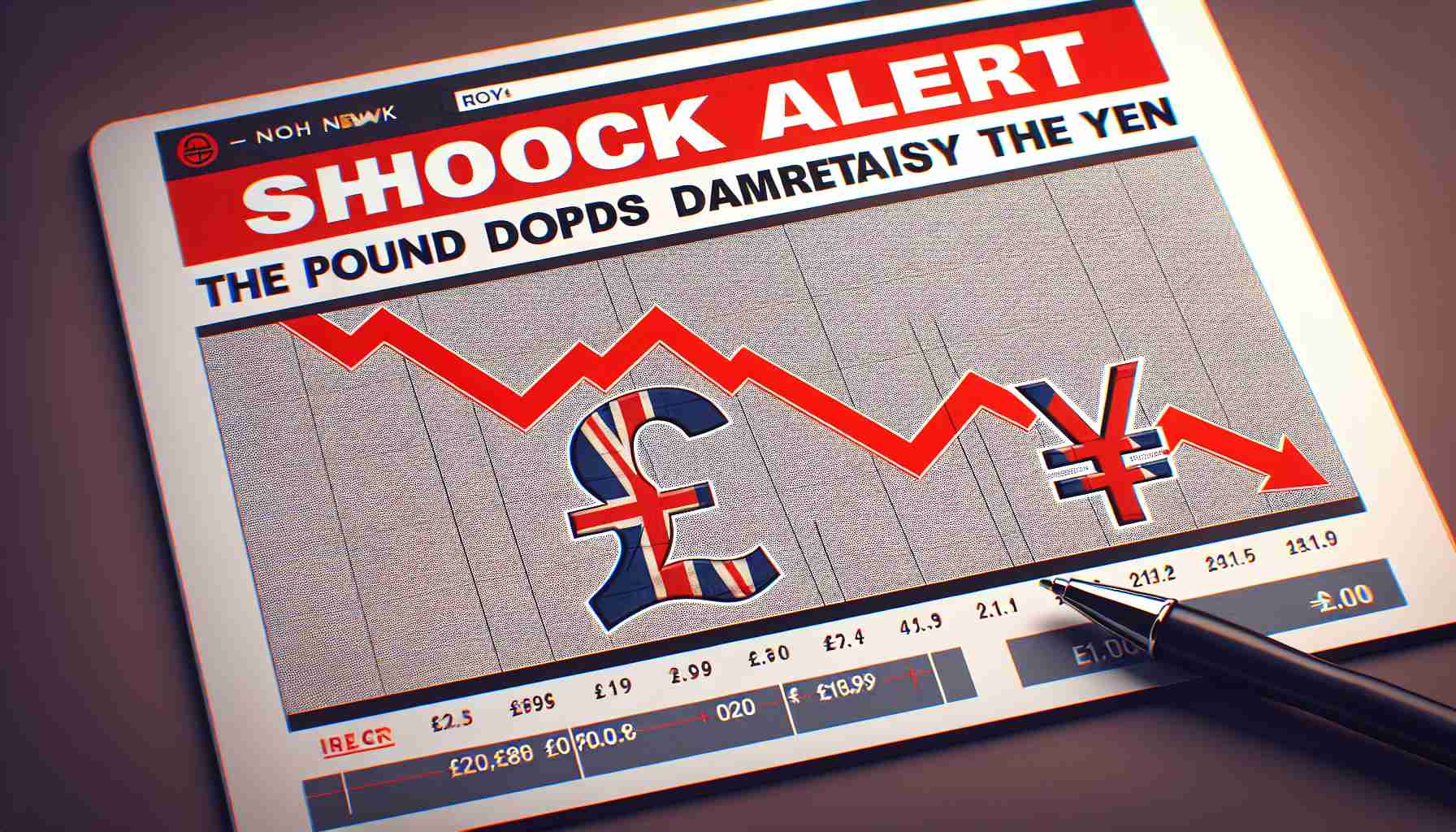- The British Pound experienced a significant decline against the Japanese Yen on July 7th, reflecting instability in the UK economy.
- The exchange rate dropped to about 188.38 Yen per Pound, a notable decrease of 1.89 Yen from the prior close.
- This fluctuation has sparked discussions among traders about the potential economic implications for international trade and investment.
- The volatility highlights the rapid changes that can occur in the forex market, affecting not just traders but also consumers and businesses globally.
- The situation underscores the importance of being adaptable and informed about currency movements and their broader economic impacts.
In a startling turn of events on July 7th, the foreign exchange market witnessed the British Pound take a significant nosedive against the Japanese Yen. By 10:30 AM, the exchange rate plummeted to approximately 188.38 Yen per Pound, marking a staggering drop of 1.89 Yen from the previous day’s close.
This sudden shift has left traders buzzing with speculation about the factors behind this volatility. As market conditions fluctuate, many investors are left grappling with the implications of this dramatic fall. The rapid decline of the Pound raises questions about economic stability in the UK and what this could mean for international trade and investment.
For those who keep a close eye on currency movements, this serves as a reminder of how quickly fortunes can change in the fast-paced world of forex trading. The rise of the Yen against the Pound not only impacts currency traders but also signals broader economic themes that could affect consumers, businesses, and economies worldwide.
In conclusion, the weakening of the Pound pushes for a reflection on global economic connections and currency resilience. Stay informed, as every shift in the forex market can be a precursor to larger economic trends. The lesson is clear: in today’s interconnected marketplace, adaptability is key!
The British Pound’s Shocking Decline: What You Need to Know
Recent Insights on the British Pound’s Decline
The recent plunge of the British Pound against the Japanese Yen has sent shockwaves through financial markets. This decline not only raised immediate concerns for forex traders but also highlights underlying economic trends and predictions that could influence future market behaviors.
Market Forecasts
Looking ahead, many analysts predict continued volatility for the Pound in the face of potential interest rate changes by the Bank of England and geopolitical unrest. A slowdown in the UK’s economic growth could further exacerbate the situation, leading to a sustained period of weakness against stronger currencies such as the Yen.
Pros and Cons of Currency Trading in Current Conditions
Pros:
– Opportunities for short-term gains due to high volatility.
– Diversification options as traders explore different currency pairs.
Cons:
– Increased risk of losses as the market remains unpredictable.
– Difficulty in making informed predictions due to rapid shifts.
Key Questions Answered
Q1: What are the main factors contributing to the decline of the British Pound?
A1: The decline has been attributed to several factors, including economic uncertainty in the UK, potential changes in interest rates, and investor confidence shifting towards stronger currencies like the Japanese Yen. Additionally, inflation concerns and trade balance deficits may also weigh heavily on the Pound’s value.
Q2: How does the exchange rate fluctuation impact international trade?
A2: Fluctuations in exchange rates can significantly affect merchandise costs, impacting exporters and importers. A weaker Pound makes UK goods cheaper for foreign buyers, potentially boosting exports. Conversely, it raises the cost of imported goods, contributing to inflation and possibly reducing consumer spending.
Q3: Are there strategies traders should adopt during such market volatility?
A3: Traders can employ various strategies, including hedging to manage risks, diversifying their investments, and keeping abreast of economic indicators and political developments. Utilizing stop-loss orders can also help limit potential losses during unpredictable market shifts.
Features to Consider
– Economic Indicators: Keep an eye on GDP growth rates, unemployment figures, and inflation statistics as they can directly influence currency strength.
– Geopolitical Events: Changes in government policy or international relations can create volatility and should be part of any trader’s risk assessment.
Insights and Trends
Recent trends show increasing interest in alternative assets and hedging methods as traders seek to protect their portfolios against currency risks. As the landscape shifts, educational resources and tutorials on trading strategies are invaluable for both novice and experienced traders.
Innovations in Currency Trading
Emerging technologies like AI-driven trading algorithms and blockchain for secure transactions are beginning to reshape the forex trading landscape, providing traders with new tools to navigate these volatile markets.
For ongoing updates and detailed analysis, explore more at Forex.com. Stay informed about market trends and ensure you’re well-equipped for the challenges ahead.
